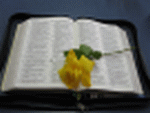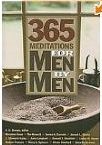3/5d The Humanist Manifesto as a Challenge to the Foundations of Christianity
In this post, we have present a brief review of the ‘Humanist Manifesto’ document in hopes that it will help the reader better understand this belief system, this ‘religion’.
THE TENETS OF HUMANISM
In 1933, and again forty years later in 1973, humanists set forth their credo in Humanist Manifesto I and Humanist Manifesto II. There is nothing left to the imagination when it comes to the tenets of Humanism. This system of thought has been so well defined and so oft’ discussed that it is an easy matter to understand its goals, aims, objectives, and teachings.
Humanism is not just a system of thought that stresses the importance of humankind. Rather, humanism is a subtle, disarming, and sophisticated way of saying “atheism”. The Humanist Manifesto II makes that clear: “As non-theists, we begin with humans, not God, nature, not deity…. [H]umans are responsible for what we are or will become. No deity will save us; we must save ourselves.” (1973, p. 16).
The Humanist Manifesto I is composed of fifteen theses covering such areas as ethics, religion, man’s origin and destiny, etc. It was signed by such men as R. Lester Mondale, brother of former Vice-President Walter Mondale, and American educator John Dewey, among others. Humanist Manifesto
II contains seventeen theses grouped under five major headings: Religion, Ethics, Individual, Democratic Society, and World Community. It was signed by a number of influential people from almost every walk of life, including, among others, Linus Pauling, Isaac Asimov, Francis Crick, Julian Huxley, Anthony Flew, Corliss Lamont, and Kai Nielsen.
In the preface, the proponents stated: “As in 1933, humanist still believe that traditional theism, especially faith in the prayer-healing God, assumed to love and care for persons,…is an unproved and outmoded faith” (1973, p. 13).
As Jesus followers, we need to be aware that humanists have “taken aim” at God, religion, the supernatural, and the Gospel message and intend to “shoot to kill”.
Quotes from ‘The Humanist Manifesto’
These Tenets are direct quotes from the “Humanist Manifesto”, originally published in the May/June issues of the New Humanist, 1933 (Vol. 6, No. 3)
1. “Religious humanists regard the universe as self-existing and not created.” 3
2. “Humanism believes that man is a part of nature and that he has emerged as the result of a continuous process.” 3
3. “Holding an organic view of life, humanists find that the traditional dualism of in and body must be rejected.”
4. “Humanism recognizes that man’s religious culture and civilization as clearly depicted by anthropology and history are the product of a gradual development due to his interactions with his natural environment and with his social heritage. The individual born into a particular culture is largely moulded to that culture.”
5. “Humanism asserts that the nature of the universe depicted by modern science makes unacceptable any supernatural or cosmic guarantees of human values.”
6. “We are convinced that the time has passed or theism, deism, modernism and several varieties of ‘new thought’.”
7. “Religion consists of those actions, purposes and experiences which are humanly significant. Nothing human 5 is alien to the religious.”
8. “Religious humanism considers the complete realization of human personality to be the end of man’s life and seeks its development and fulfilment in the here and now.” 5
9. “In place of the old attitudes involved in worship and prayer, the humanist finds his religious emotions expressed in a heightened sense of personal life and in a cooperative effort to promote social well being.”
10. “It follows that there will be no uniquely religious emotions and attitudes of the kind hitherto associated with belief in the supernatural. “
11. “Man will learn to face the crises of life 5 in terms of his knowledge of their naturalness and probability. Reasonable and manly attitudes will b3e fostered by education and supported by custom….”
12. “Believing that religion must work increasingly for joy in living, religious humanist am to foster the creative in man and to encourage achievements that add to the satisfactions of life.” 5
13. Religious humanism maintains that all associations and institutions exist for the fulfilment of human life. The intelligent evaluation, transformation, control and direction of such associations and institutions with a view to the enhancement of human life is the purpose and program of humanism. Certainly, religious and communal activities must be reconstituted as rapidly as experience allows in order to function effectively in the modern world.”
14. “The humanist are firmly convinced that existing acquisitive and profit-motivated society has shown itself to be inadequate and that a radical change in methods, controls and motives must be instituted. A Socialized and cooperative economic order must be established to the end that the equitable distribution of the means of life be possible. The goal of humanism is a free and universal society in which people voluntarily and intelligently cooperate for the common good. Humanists demand a shared life in a shared world.”
15. “We assert that humanism will (a) affirm life rather than deny it; (b) seek to elicit the possiblies of life not flee from it; and (c) endeavour to establish the conditions of a satisfactory life for all, not merely for the few….”
Comments about the document:
1. These tenets are direct quotes from the “Humanist Manifesto”, originally published in the May/June issue of The New Humanist, 1933 (Vol.6, No. 3).
2. Humanism is a religion,
3. The foundation of Humanism is evolution,
4. Humanists reject God, the Bible and Biblical morality,
5. Including any form of sexual perversion,
6. An attempt to minimize death,
7. Open attack on the Church and Christians,
8. Opposed to American free enterprise system,
9. One world government,
10. Socialistic communism.
As you can see, much of the Humanistic belief system has come from this document make in 1933. May we all examine our belief system and sort through the difference between “Do what thou Wilt” and what is it a holy and good God asks of us as individuals, as families and as a nation.
We trust this has added to your understanding abiout this Challenge to Christianity from another point of view,
Susanne Fengler, Blog Author
Tags: Humanist Manifesto
Filed under: Challenges to the Christian Faith





Leave a Reply